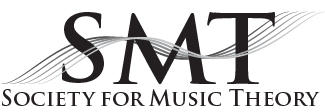Editor’s Message
We feature three articles in our fourth MTO volume of 2006:
David Neumeyer traces references to the eighteenth-century contredanse in concert music by Mozart and Haydn in “The Contredanse, Classical Finales, and Caplin's Formal Functions.” He recasts the second movement of Mozart’s K. 547a Piano Sonata as a contredanse for two violins, illustrating with graphic and audio examples how Mozart alludes to the contredanse and expands its periodic form. The article proposes that William Caplin’s distinction between “tight-knit” and “loose” principles of construction may have a source in the active and expressive opposition of dance and concert music.
In “The Power of Anacrusis: Engendered Feeling in Groove-Based Musics,” Matthew W. Butterfield studies how subtle variation in backbeat timing contributes to expressivity and forward drive in the patterning of a rhythmic groove. Synthesized audio renderings enable readers to explore differences in backbeat timing and the varying qualities of feeling they produce. The analysis explores interrelationships of syntactical patterning and expressive microtiming in Herbie Hancock’s Chamelion.
Adrian P. Childs proposes a systematic means to describe common-tone relationships among all-interval tetrachords in “Structural and Transformational Properties of All-Interval Tetrachords.” Drawing upon the work of Guy Capuzzo, the article shows how passages in Elliott Carter’s Scrivo in Vento for solo flute and Shard for solo guitar project all-interval tetrachord transformations exhibiting the compliment-union property.
Also included are listings of employment opportunities, calls for papers, conference announcements, new dissertations, and new books, in a continually updated dynamic format.
Submissions to MTO are welcome at any time. We invite full-length articles, shorter commentaries, and innovative electronic formats. Comments in response to this issue’s articles may be submitted to the Editor for publication in the next issue.
Our dynamic listings for job announcements, upcoming conferences, calls for papers, new dissertations, and new books are updated automatically as soon as we receive and approve any new listing. Readers can check the MTO listings at any time to find current information on recent announcements. We also have links for submitting announcements and welcome new listings to keep our postings current.
All MTO volumes dating back to our first issue in 1993 can be accessed from the contents page at http://www.mtosmt.org/issues/issues.html.
Thank you for your support of MTO!
![]()
|
Timothy Koozin, Editor Updated
03 July 2013 |
